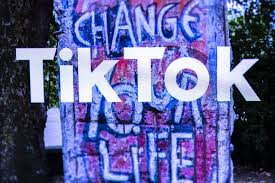
TikTok’s parent company announces lawsuit against US government
Beijing: ByteDance, owner of the popular video platform TikTok, announced Sunday that it will file a lawsuit against the U.S. government Tuesday, Beijing time, to protect its rights and interests while beginning to prepare a shutdown plan for its business in the United States.
“Over the past year, we have earnestly sought to communicate with the U.S. government, and provided solutions regarding its concerns. But the U.S. administration disregarded facts, disobeyed necessary legal procedures, and tried to insert itself into negotiations between private businesses,” ByteDance said in a statement. “To ensure that the rule of law is not discarded, and that our company and users are treated fairly, we announce that we will officially file a lawsuit to safeguard our interests.”

Besides the lawsuit, the company is also preparing for the worst — a shutdown plan to keep its employees in the United States on the payroll, even if the app is shut down in the country.
U.S. authorities have repeatedly accused TikTok of being a potential threat to U.S. national security since last year.
U.S. President Donald Trump signed an executive order on Aug. 6, blocking all transactions with ByteDance, to address “the national emergency.”
The New York Times, however, reported on August 7 that even the Central Intelligence Agency assessed that there is no evidence showing China had intercepted TikTok’s data, or used the app to intrude on users’ mobile phones.
The order was to take effect within 45 days. On Aug. 14, the president signed another executive order, this time giving ByteDance 90 days to sell or spin off TikTok in the United States.
There has been no evidence to show that TikTok poses a threat to U.S. national security, according to TikTok’s U.S. General Manager Vanessa Pappas.
TikTok has more than 100 million users, over 1,500 employees and thousands of business partners in the United States, according to ByteDance.
A shutdown, if it occurs, would cause ByteDance a loss of at least 200 billion yuan (28.94 billion U.S. dollars) at a rumored sale of 20 billion U.S. dollars to 50 billion U.S. dollars, the company said.
ByteDance worries that, due to the extremely wide scope and highly uncertain content of the U.S. executive order against ByteDance, the company is unable to ensure that a solution acceptable to all parties can be reached within the time limit set by the U.S. government.
In just a few years, TikTok has become one of the most beloved apps among the global youth population, providing a platform for people to display their talent through short videos.
Since September 2018, TikTok usage among adults in the United States has increased exponentially, doubling and reaching 14.3 million in just six months, recording the third-highest number of downloads in the world.
Data from app analytics firm Sensor Tower showed that it was the most downloaded non-gaming app globally in June 2020, and its installs were much higher than those of Facebook, Instagram, and YouTube during the first two quarters in the United States.
Besides the company’s lawsuit, its U.S. employees are also planning to take the Trump administration to court over the executive order.
Under the pretext of national security, the U.S. government is obviously abusing state power to suppress Chinese high-tech enterprises, said Huo Zhengxin, a professor in international law at the China University of Political Science and Law in Beijing.
From a legal perspective, such actions from the U.S. have no basis, Huo said, noting that the hastily-issued executive order did not give TikTok any opportunity to defend itself. The U.S. oppression on TikTok is probably unprecedented, he noted.
“The litigation itself is of great significance. First, this is an important measure for the Chinese enterprise to protect its rights, which will bring legal and public pressure to the U.S. government,” the professor said. “Second, it shows the confidence of Chinese companies and may become a landmark event for Chinese companies to protect their rights.”
